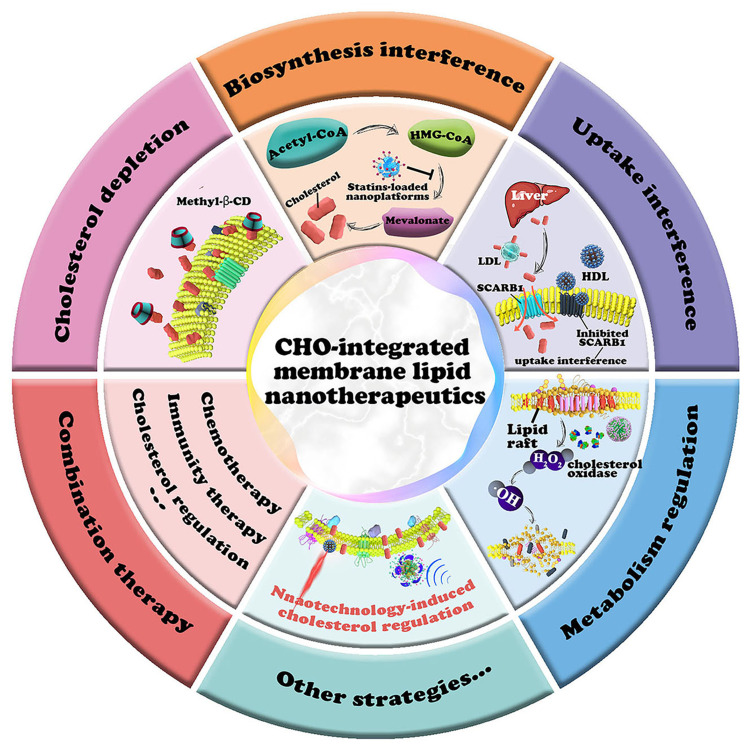- Record: found
- Abstract: found
- Article: found
Regulating Cholesterol in Tumorigenesis: A Novel Paradigm for Tumor Nanotherapeutics

Read this article at
Abstract
During the past decade, “membrane lipid therapy”, which involves the regulation of the structure and function of tumor cell plasma membranes, has emerged as a new strategy for cancer treatment. Cholesterol is an important component of the tumor plasma membrane and serves an essential role in tumor initiation and progression. This review elucidates the role of cholesterol in tumorigenesis (including tumor cell proliferation, invasion/metastasis, drug resistance, and immunosuppressive microenvironment) and elaborates on the potential therapeutic targets for tumor treatment by regulating cholesterol. More meaningfully, this review provides an overview of cholesterol-integrated membrane lipid nanotherapeutics for cancer therapy through cholesterol regulation. These strategies include cholesterol biosynthesis interference, cholesterol uptake disruption, cholesterol metabolism regulation, cholesterol depletion, and cholesterol-based combination treatments. In summary, this review demonstrates the tumor nanotherapeutics based on cholesterol regulation, which will provide a reference for the further development of “membrane lipid therapy” for tumors.
Graphical Abstract
Related collections
Most cited references107
- Record: found
- Abstract: found
- Article: not found
Cancer nanomedicine: progress, challenges and opportunities
- Record: found
- Abstract: found
- Article: not found
Cholesterol Induces CD8+ T Cell Exhaustion in the Tumor Microenvironment
- Record: found
- Abstract: not found
- Article: not found
